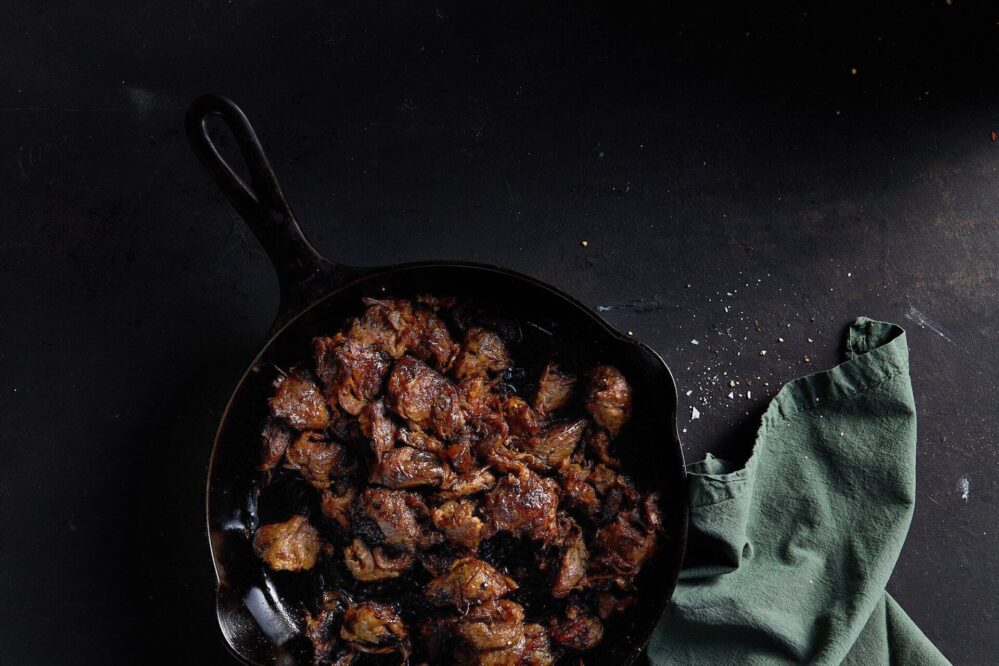[Disclosure: AFN’s parent company, AgFunder, is an investor in Fable Food.]
“I’ve been one of those annoying vegans trying to convince everyone around me to turn vegan and in seven years, I’ve convinced three people,” observes Fable Food founder and CEO Michael Fox.
“A lot of people get why we need to eat less meat, but they carry on eating it because it tastes great.”
Put another way, says Fox, telling people we can tackle ethical or environmental problems in the food system by reducing our reliance on industrial animal agriculture is all very well, but unless you’re hitting the spot on taste, price, health and convenience with your meat and dairy alternatives, it doesn’t really matter how compelling these arguments are.
Fable Food, claims Fox, can meet consumer expectations on taste and health with its minimally-processed wares, but just as importantly, it can do it without breaking the bank.
AFN caught up with Sydney-based Fox to find out more about Fable’s mushroom-fueled meat alternatives business (tagline: ‘Real mushrooms, Really meaty’), which he cofounded in 2019 with mushroom farmer Chris McLoghlin; and chef, chemical engineer and mycologist Jim Fuller.
AFN: Does the world need another startup making meat alternatives?
MF: The majority of meat alternatives on the market today aren’t meeting the needs of consumers on taste, price, or health, or at least the consumer perception of health.
There was a big boom and arguably a bubble driven by trial [in the early days of the pandemic], which shows there was a desire to reduce meat consumption; many Americans went out and tried meat alternatives. But the repeat purchase rates are not high because consumer needs are not being met.
Meat alternatives have to win on taste, price and health. That’s our focus, and we think mushrooms are the best route to do it. The primary reason people give for trying to reduce their meat consumption is health, and they want to eat foods that are natural, minimally processed, and whole food based.
From an evolutionary perspective, mushrooms are more closely related to animals and humans than plants. It takes a lot of processing to turn soy or pea into meat, whereas mushrooms have a natural meaty umami flavor and you don’t need as much processing to turn them into meat.
They’re also a very efficient food to grow and we don’t need to do a lot of processing, which makes our products cheaper to manufacture [than soy-, wheat-, or pea-based products requiring fractionation and extrusion].
There’s also burgeoning interest in the health benefits of mushrooms [a subject explored in an episode of the Netflix travel show Down to Earth with Zac Efron featuring Fox’s cofounders Jim and Chris].
AFN: Some high-profile alt-meat companies have lousy margins; can you make money before you operate at large scale?
MF: Our path to profitability is simpler. By design, the products are minimally processed, and they don’t require extruders or other expensive equipment. We’ve developed our processes so they work with commonly available equipment, and we can work with lots of different contract manufacturers. We’re cheaper than the animal meats that we replicate.
AFN: Are investors cooling on meat alternatives? How tough has raising money been?
MF: Market conditions made it more challenging to raise our series A. By the time we got our deck together and started pitching, it was early March 2022, and then the markets started to tank, and it took us until November to finally close the [$8.5 million] round.
US investors pretty much stopped investing last year in the plant-based space, or at least a lot of them stopped investing in new companies and focused on existing portfolio companies. We ended up getting a lead investor from Singapore [K3 Ventures.] and then all of our existing investors were very supportive.
But at the same time, this whole conversation about meat alternatives being too processed plays into our key point of differentiation within the category, as we’re minimally processed.
In total, we’ve raised about $14.5 million, and in our four years of operation, we’ve burned less than $6 million and we’re getting pretty close to cashflow or P&L breakeven now.

AFN: Several startups are using biomass fermentation to grow mycelium for alt meat. How do you differ?
MF: We’re using the fruiting body of fungi, rather than growing mycelium [the root structure] in fermentation tanks. Humans have been eating mushrooms for thousands of years, and they’re the most common ingredient in Traditional Chinese Medicine.
What the mycelium companies are doing is super interesting, but growing food in big stainless steel tanks or eating food that in nature grows in wood or soil is harder to communicate to consumers. It’s also unclear whether they [all firms in the fungal biomass fermentation space] can use the word ‘mushroom’ on labels or whether they need to talk about ‘fungi’ or ‘mycelium,’ which also makes it harder to explain what you’re doing to consumers.

AFN: Are mushrooms meaty? What about protein content and nutritional profiles?
MF: While there is a consumer perception that we need more protein, this is not really borne out by the evidence. Unless you’re malnourished, you’re likely getting enough protein, whereas most people in Western countries don’t get enough fiber.
Mushrooms are incredibly high in fiber, and Shiitake mushrooms contain vitamin D, another nutrient a lot of people in Western countries are deficient in. They also contain vitamin B12 [which vegans and vegetarians can lack].
We add some soy protein isolate powder to our products—which is less processed than textured soy protein—to help bind the mushrooms into forms such as burger patties and meatballs as we don’t use any methylcellulose. Then there’s the added benefit that it increases the protein content.
AFN: Is there any IP underpinning your business?
MF: Our core competitive advantage is the IP we’ve developed around how to take fresh mushrooms and turn them into delicious meaty food.
We’ve developed unique cooking processes to improve the meaty, umami flavors of the mushrooms and de-emphasize the traditional sulfuric mushroom flavors, and also make the nutrients in the mushrooms more bioavailable for our bodies to absorb. We’ve got quite a few patents and pending patents.
AFN: How do you allocate resources so that you don’t spread yourself too thinly?
MF: We started out going very wide on channels to see what would work, so we tried retail, meal kits, and foodservice. They all worked to an extent, but foodservice and meal kits worked the best, so now we’re focusing on the premium quick service segment with a health focus, particularly in cuisine types such as Mexican burgers and salad chains and Poke bowls.
We’re also staying relatively narrow on product, so we’ve got two main products in the market: the pulled mushrooms and our burger patty, although we also have meatballs and breakfast sausage patties.
Geographically, we’re focusing on Australia, the US and UK. We’ve also launched in Singapore, New Zealand and Canada, but those are more secondary markets.
AFN: How is Fable Food doing?
MF: We don’t share revenue numbers publicly, but we’ve roughly doubled our revenue each year since we started, and we had a few P&L profitable months early last year before our fundraise. We’ve got 17 full-time employees and our series A round will give us years of runway, because we’re pretty close to breakeven now.





